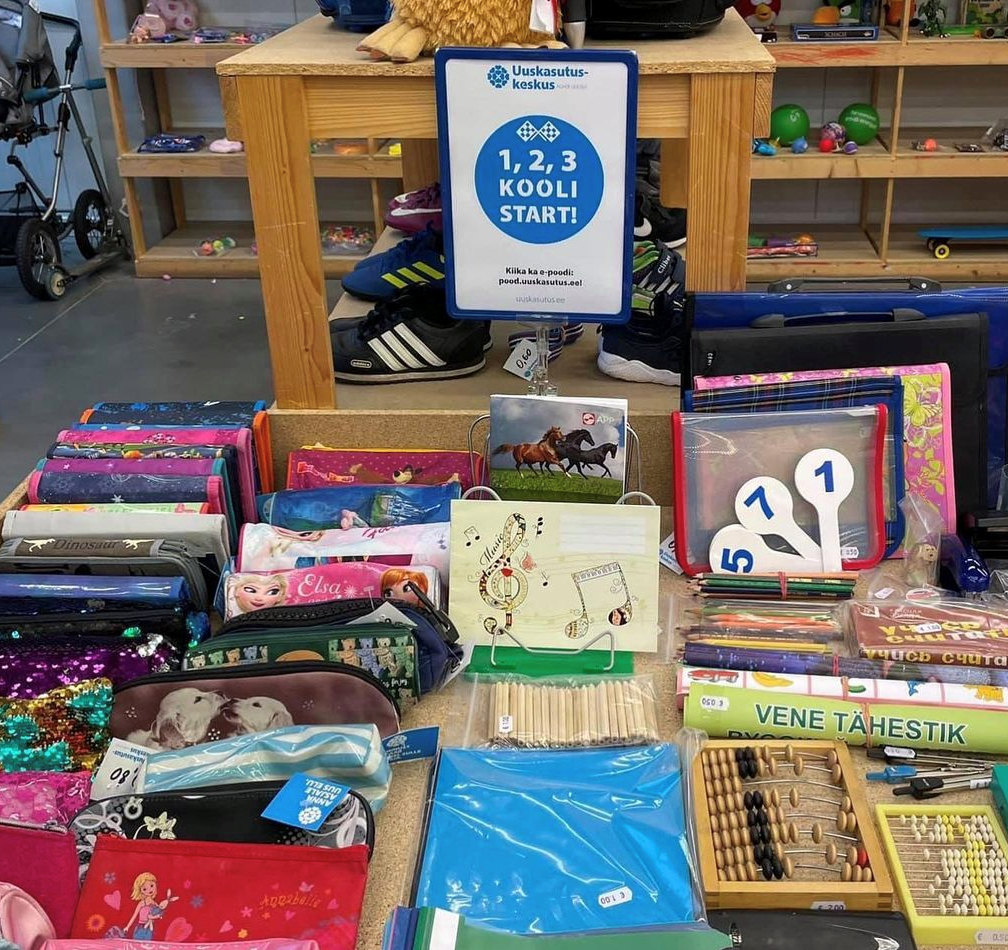Back to school? Save money and the environment through second-hand!
Whilst children require certain products to go to class and learn, many of these goods have a limited lifespan, often being used for one single year before ending up in landfill. But this is not the only pitfall of the back-to-school period: school supplies are increasingly becoming a financial burden to many families.
Last year, the cost of going back to school in France jumped by 6,2% compared to 2019, ranging from an average budget of €177 in the first year of elementary school to €407 in the first year of high school, for supplies only. Similarly, in 2020 in Spain, the average cost of back-to-school supplies such as books, uniforms and more was estimated to be €440 per student.
A recent survey in Ireland unveiled that a quarter of parents are actually getting into debt to cover rising back-to-school costs. The pandemic increased the use of ICT products, inevitably adding extra pressure to vulnerable families, all the while deepening the digital and social divide.
To increase circularity and provide affordable alternatives, especially to low-income families, social enterprises are responding to these pressing needs by:
- Promoting re-use alternatives: Several organisations, including Les Petits Riens in Belgium or Uuskasutuskeskus in Estonia, launched initiatives to sell second-hand school supplies that are more affordable. donateNYC is coordinating a campaign to both collect and sell second-hand school supplies together with community organisations focusing on different issues, spanning from collecting goods for homeless schoolkids to remote learning packages for vulnerable families.
- Re-using ICT products: The coronavirus crisis exacerbated the importance of digital technology in schooling, which might be one of the main factors explaining the rise in back-to-school supplies. That is why many social enterprises launched initiatives aiming to bridge the digital divide. Les Ateliers du Bocage stepped up its re-use activities of ICT products to reach disadvantaged groups, motivated by approximately 25,000 students who were utterly cut off from school when the first lockdown began. Ateliere Fārā Frontiere, a Romanian social enterprise, participated in a nationwide campaign donating over 2000 computers in 2021. The main goal was to reach students without access to online tools during the pandemic, therefore providing fair education opportunities.
- Offering special solidarity discounts: De Kringwinkel Antwerp is offering discounts for students and teachers on secondhand products such as books, desks and upcycled satchels. Likewise, 20 Emmaüs stores in France will offer discounts of 20% and up to 50% throughout September to facilitate students’ access to a broad range of goods.
- Creative upcycling alternatives: Social enterprises are also offering creative options to re-use discarded materials to create a higher value product. De Kringwinkel is offering an alternative for book covers: covering them with upcycled textiles. Hoos offers satchels, pencil cases and swimming bags made from used advertising textiles, thus making unique bags from unique materials. Finally, thanks to its upcycling project GENTMADE, De Kringwinkel Ateljee also sells backpacks made with upcycled second-hand materials, each with a unique design!
- Offering free learning cafes for low-income students: In order to address inequality, Caritas Vienna, a member of RepaNet, offers not only special prices for students from low-income households, but also hosts free learning cafes where disadvantaged students can do their homework with volunteers.
- Other initiatives: Social enterprises are also offering additional services to pave the way for in-person education, including affordable biking options for students or professional cleaning services to increase safety. HERWIN’s members in Flanders, Belgium, are an excellent example of these additional services.
Going back to school is undoubtedly a special moment for families across Europe, with re-use initiatives providing affordable alternatives to disadvantaged families, all the while preventing waste and creating job opportunities.


